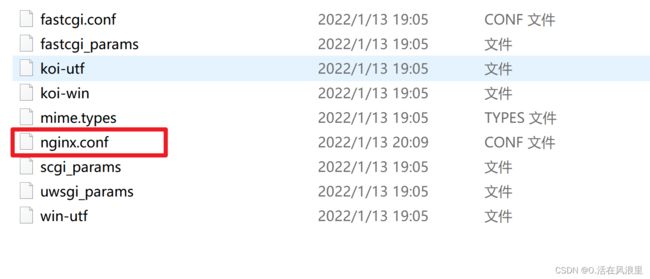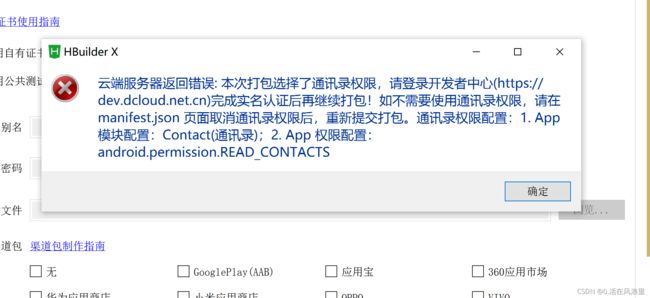一步一步,一步 从代码到,打包成为手机App,上传至nginx服务器 (Vue项目)
目录
vue.config.js配置
打包
上线ngnix服务器
打包成为手机App
前言:
踩了不少坑,熬了挺久的夜总结出来的,记录一下,也希望帮助到需要的小伙伴,
在写项目开始之前,配置别名或跨域,是要提前配置好的,写的过程需要用到,
vue.config.js配置
- 新建一个vue.config.js文件 ,内容写在代码中,大概17步骤,从11M变成2M,当然了其中的
- 字体图标和没用的图与json我都没有删除,这个其实还可以在小,一般图片都是请求后端
- 接口的静态图片,像本地的图片不应该存在很多...
// 1-17步骤 // 3 加载path模块和定义resolve方法, 把相对路径转换成绝对路径 const path = require('path') const resolve = dir => path.join(__dirname, dir) // 5 安装去除log包 cnpm install uglifyjs-webpack-plugin --save-dev //6引入去除log文件 const UglifyJsPlugin = require('uglifyjs-webpack-plugin') const isProduction = process.env.NODE_ENV === 'production'; // 13 对资源文件进行压缩引入 const CompressionWebpackPlugin = require('compression-webpack-plugin') // 8 引入cdn const externals = { vue: 'Vue', 'vue-router': 'VueRouter', vuex: 'Vuex', vant: 'vant', axios: 'axios' } // CDN外链,会插入到index.html中 const cdn = { // 开发环境 dev: { css: [], js: [] }, // 生产环境 build: { css: ['https://cdn.jsdelivr.net/npm/[email protected]/lib/index.css'], js: [ 'https://cdn.jsdelivr.net/npm/[email protected]/dist/vue.min.js', 'https://cdn.jsdelivr.net/npm/[email protected]/dist/vue-router.min.js', 'https://cdn.jsdelivr.net/npm/[email protected]/dist/axios.min.js', 'https://cdn.jsdelivr.net/npm/[email protected]/dist/vuex.min.js', 'https://cdn.jsdelivr.net/npm/[email protected]/lib/vant.min.js' ] } } module.exports = { // 1 publicPath: './', // 静态资源路径(默认/,打包后会白屏) // 2 productionSourceMap: false, //错误映射,关闭会减少一半体积 devServer: { hotOnly: true, // 热更新 proxy: { "/api": { // http://www.sirfang.com/build/ajax_get_list这是完整路径,将com/后的路径重写路径为api // 1 目标路径 这里相当于公共的地址 target: "http://120.53.31.103:84/api", // port: 8080, // 1.1端口号 默认的可以不配 open: true, // 1.2运行项目自启 //2 允许跨域 changOrigin: true, //3 重写路径 pathRewrite: { '^/api': '' } //4 是否启用websockets // ws: true, } } }, // 4 添加别名 chainWebpack: config => { config.resolve.alias .set('@', resolve('src')) .set('assets', resolve('src/assets')) .set('api', resolve('src/api')) .set('views', resolve('src/views')) .set('components', resolve('src/components')) // 10 添加CDN参数到htmlWebpackPlugin配置中 // 11 在pubilc/index 中配置 我放在最下面了 // 12 cnpm i compression-webpack-plugin -D 对资源文件进行压缩 config.plugin('html').tap(args => { if (isProduction) { args[0].cdn = cdn.build } else { args[0].cdn = cdn.dev } return args }) // 16 配置图片压缩 config.module .rule('images') .use('image-webpack-loader') .loader('image-webpack-loader') .options({ bypassOnDebug: true }) .end() }, // 7 使用去除log configureWebpack: config => { const plugins = []; if (isProduction) { // 9 配置cdn config.externals = externals // 配置cdn plugins.push( new UglifyJsPlugin({ uglifyOptions: { output: { comments: false, // 去掉注释 }, warnings: false, compress: { drop_console: true, drop_debugger: false, pure_funcs: ['console.log'] //移除console } } }), // 14 对资源文件进行压缩引入进行配置: new CompressionWebpackPlugin({ filename: '[path].gz[query]', algorithm: 'gzip', // test: /\.js$|\.html$|\.json$|\.css/, test: /\.js$|\.json$|\.css/, threshold: 10240, // 只有大小大于该值的资源会被处理 minRatio: 0.8, // 只有压缩率小于这个值的资源才会被处理 // deleteOriginalAssets: true // 删除原文件 }) // 15 安装图片压缩 cnpm install image-webpack-loader --save-dev 容易安装不上 // 若安装过 image-webpack-loader 先卸载 !!! // npm 安装的npm 则npm 移除 // npm uninstall image - webpack - loader //如果yarn安装的,则yarn 移除 // yarn remove image - webpack - loader ), // 17公共代码抽离 config.optimization = { splitChunks: { // 分割代码块 cacheGroups: { vendor: { //第三方库抽离 chunks: 'all', test: /node_modules/, name: 'vendor', minChunks: 1, //在分割之前,这个代码块最小应该被引用的次数 maxInitialRequests: 5, minSize: 0, //大于0个字节 priority: 100 //权重 }, common: { //公用模块抽离 chunks: 'all', test: /[\\/]src[\\/]js[\\/]/, name: 'common', minChunks: 2, // 在分割之前, 这个代码块最小应该被引用的次数 maxInitialRequests: 5, minSize: 0, //大于0个字节 priority: 60 }, styles: { //样式抽离 name: 'styles', test: /\.(sa|sc|c)ss$/, chunks: 'all', enforce: true }, runtimeChunk: { name: 'manifest' } } } } } }, }
配置别名,静态图片不显示解决
在html中 需要在别名前面加上 ~ 符号

在js中,需要使用require('url')
list: [
{
"type": "image",
"imgUrl": require('assets/logo.png'),
"desc": "动物园"
}
]这样图片就可以成功引入了
- 以上是配置修改webpack默认配置源码,可以直接赋值,也可以按需求使用,重点都写
- 在代码段内,再次还要重申一遍,下载压缩图片,可能不会那么容易成功,多试几次,切记
- 下载不成功要使用代码命令卸载后,再次重新下载,可参考package.json /devDependencies:{}
打包
- 运行npm run build稍等会生成一个dist文件,打开后有index.html使用Open with Live Server打开,
- alt+b不可以,因为Open with Live Server打开的是本地服务器,Alt+B是相对电脑盘符的,Open with Live Server可以在VSC编辑器下载
上线nginx服务器
- 下载nginx包 下载地址:nginx: download
http://nginx.org/en/download.html (Nginx官网)
- 2、下载之后,解压到指定的目录,就可以看到以下的目录
- 在地址栏运行cmd,不要直接双击ngnix.exe ,
盘符或目录不能有中文路径,不能直接双击打开(慎用),不主动停止nginx就要等到缓存过期才会关闭,- 可以使用命令关闭,和在任务管理器杀死进程
- cmd后出现黑窗口,输入命令 start ngnix 启动(一闪黑窗口,没任何提示,此时已经启动成功)
- 然后在浏览器页面输入localhost,默认80端口,
- 从vsc打开可以修改配置,root可以改为dist,不修改就是打包的文件的根目录是html,
- 修改为dist,就需要将打包文件dist复制到html下,而不是dist文件夹里的文件复制过来
nginx代码
#user nobody;
worker_processes 1;
#error_log logs/error.log;
#error_log logs/error.log notice;
#error_log logs/error.log info;
#pid logs/nginx.pid;
events {
worker_connections 1024;
}
http {
include mime.types;
default_type application/octet-stream;
#log_format main '$remote_addr - $remote_user [$time_local] "$request" '
# '$status $body_bytes_sent "$http_referer" '
# '"$http_user_agent" "$http_x_forwarded_for"';
#access_log logs/access.log main;
sendfile on;
#tcp_nopush on;
#keepalive_timeout 0;
keepalive_timeout 65;
#gzip on;
server {
listen 33324;
server_name localhost;
#charset koi8-r;
#access_log logs/host.access.log main;
location / {
root html;
try_files $uri $uri/ /index.html last;
index index.html index.htm;
}
#error_page 404 /404.html;
# redirect server error pages to the static page /50x.html
#
error_page 500 502 503 504 /50x.html;
location = /50x.html {
root html;
}
# proxy the PHP scripts to Apache listening on 127.0.0.1:80
#
#location ~ \.php$ {
# proxy_pass http://127.0.0.1;
#}
# pass the PHP scripts to FastCGI server listening on 127.0.0.1:9000
#
#location ~ \.php$ {
# root html;
# fastcgi_pass 127.0.0.1:9000;
# fastcgi_index index.php;
# fastcgi_param SCRIPT_FILENAME /scripts$fastcgi_script_name;
# include fastcgi_params;
#}
# deny access to .htaccess files, if Apache's document root
# concurs with nginx's one
#
#location ~ /\.ht {
# deny all;
#}
}
# another virtual host using mix of IP-, name-, and port-based configuration
#
#server {
# listen 8000;
# listen somename:8080;
# server_name somename alias another.alias;
# location / {
# root html;
# index index.html index.htm;
# }
#}
# HTTPS server
#
#server {
# listen 443 ssl;
# server_name localhost;
# ssl_certificate cert.pem;
# ssl_certificate_key cert.key;
# ssl_session_cache shared:SSL:1m;
# ssl_session_timeout 5m;
# ssl_ciphers HIGH:!aNULL:!MD5;
# ssl_prefer_server_ciphers on;
# location / {
# root html;
# index index.html index.htm;
# }
#}
}
然后在浏览器页面输入localhost:33324就部署到ngnix服务器上了(端口号写自己设置的)
打包成为手机App
1.Hbx 编辑器建文件
2.将dist文件复制在 HbuilderX编辑器建立的文件中
3. 配置app
4.发行
6. 点击打包 如果弹出权限,就去认证或将通讯录勾掉,我会吧链接放下面,和图文
点击 认证
详情参考我这篇博客vue打包为App手摸手教你_活在风浪里的博客-CSDN博客一、修改请求静态资源的路径打开config下的index.js文件,修改assetsPublicPath的值,从‘/’改为‘./’。即从根路径改为相对路径。build: { // Template for index.html index: path.resolve(__dirname, '../dist/index.html'), // Paths assetsRoot: path.resolve(__dirname, '../dist'), assetshttps://blog.csdn.net/m0_57904695/article/details/121574356?ops_request_misc=%257B%2522request%255Fid%2522%253A%2522164215790816780265426783%2522%252C%2522scm%2522%253A%252220140713.130102334.pc%255Fblog.%2522%257D&request_id=164215790816780265426783&biz_id=0&utm_medium=distribute.pc_search_result.none-task-blog-2~blog~first_rank_ecpm_v1~rank_v31_ecpm-2-121574356.nonecase&utm_term=%E6%89%93%E5%8C%85&spm=1018.2226.3001.4450
感谢你阅读到这里了,还不点歌赞,哈哈













